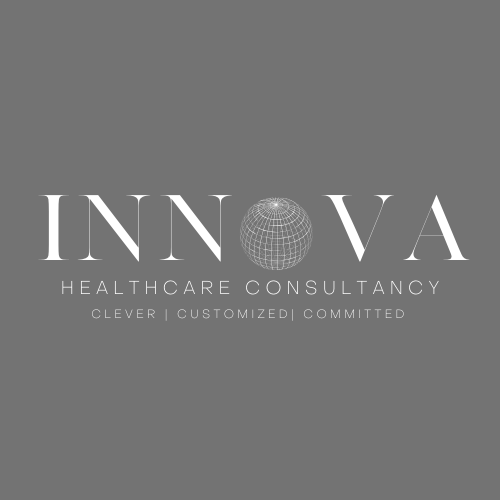From Boardrooms to Backstreets: What the Assassination of a Healthcare Executive Reveals About Inequity in Global Healthcare
Taking a break from the threats of nuclear war, global warming, and immigration issues, this week’s headlines have been unexpectedly striking. By now, most people have likely heard about the United Healthcare executive who was shot on the street. What’s even more shocking is the public’s response, with some celebrating the alleged shooter. This reaction has sparked a mix of confusion, disgust, and even attempts at justification.
This event has highlighted how wealth disparity has intensified deep-rooted resentment and frustration. While the affluent and upper-middle-class expressed outrage at the incident, lower-income communities celebrated it, prompting a critical question: in a nation ranked 10th globally for its healthcare system, how has it failed to safeguard the health and well-being of all its communities?
The Myth of Free Market Healthcare
The healthcare market in America is a “free market trade” but a free market relies on informed consumers making choices based on transparent pricing and quality. However, in this healthcare system, there are:
-
Lack of Transparency: Patients often discover the cost of services only after receiving them, eliminating the ability to make informed decisions.
-
Restricted Options: Insurance companies limit access by dictating which hospitals, facilities, and physicians are covered, forcing patients into predefined networks rather than allowing them to choose freely.
-
Corporate Control: Decision-making power is concentrated in the hands of corporations, leaving patients with little say in their own care.
In a genuine free market, competition and consumer choice drive affordability and quality. The U.S. healthcare system, dominated by insurance companies and providers, deviates significantly from this principle as evidenced by increasing premiums, high claim denial rates, and market concentration.
In 2023, the average annual health insurance premium rose to $8,435 for single coverage and $23,968 for family coverage—each reflecting a 7% increase from the prior year. Over the past decade, family premiums have surged by 47%, straining household budgets. Moreover, in 2021, insurers denied nearly 17% of in-network claims on HealthCare.gov plans, with denial rates ranging dramatically, some as high as 49%. Adding to this imbalance, the health insurance market is increasingly concentrated, with fewer companies dominating, limiting consumer choice and reducing competitive pressure to lower costs or improve service, functioning more like an oligopoly.
Ethiopia’s Healthcare Parallels
This issue, however, is not unique to the U.S.; Ethiopia’s healthcare system mirrors these challenges in a distressingly similar way. In private healthcare facilities, patients are often blindsided by costs, learning them only after services have been rendered. For example, a basic diagnostic procedure like an ultrasound can cost anywhere from 800 to 2,000 ETB in one facility and over 5,000 ETB in another, with no standardization or oversight to regulate these prices. Moreover, there is no transparent pricing system—a patient’s financial predicament is rarely considered.
The lack of regulatory frameworks to control healthcare pricing means private institutions are free to hike costs at will, driven by their profit margins rather than the needs of the people. The consequences are devastating: families forced to sell their homes, incur insurmountable debt, or resort to public appeals and begging to afford life-saving treatments. Data from Ethiopia’s Ministry of Health reveals that out-of-pocket healthcare expenditure accounts for over 30% of total health spending, pushing countless households into poverty each year.
Yet, even with these stark realities, the government’s oversight remains minimal. While ensuring healthcare facilities pay taxes, authorities rarely monitor their pricing structures, service quality, or monopolistic practices. This unchecked environment has left the most vulnerable populations at the mercy of a system that prioritizes profit over compassion.
The Moral Imperative
When institutions formed to safeguard the well-being of individuals treat healthcare as a commodity rather than a life-saving necessity, they risk prioritizing profit over humanity. Vulnerable populations bear the brunt of these systemic inequities, facing life-threatening barriers to essential care. This raises broader concerns about whether healthcare should ever be treated as a market commodity, given its profound implications for equity and public well-being.
Playing devil’s advocate, it can be argued that private healthcare institutions shoulder immense costs and risks. The financial burden of innovation, maintaining high-quality care, and navigating market uncertainties compels them to adopt a profit-driven model. High prices allow them to sustain operations, reinvest in cutting-edge technologies, and expand their services to meet growing demand. Without such incentives, the private sector might struggle to deliver the specialized care that millions rely on.
But there must be a balance. Ensuring profitability should not come at the expense of equitable access to healthcare. While private institutions have a legitimate right to recover costs and drive innovation, unchecked pricing exacerbates inequality, leaving essential care out of reach for many. To address this, governments must implement thoughtful regulation, enforce transparent pricing practices, and establish safety nets that ensure life-saving treatments are accessible to all, regardless of income. A sustainable healthcare system must harmonize the needs of private providers with the moral imperative to safeguard public health.
A Call for Change
The United Healthcare executive’s tragic story, and the unsettling responses to it, is a wake-up call. It forces us to examine not just the flaws within healthcare systems but also the societal fractures they deepen. Whether in the United States or Ethiopia, the lesson is clear: healthcare must transcend profit motives and be anchored in humanity, equity, and the unwavering commitment to preserving life.
